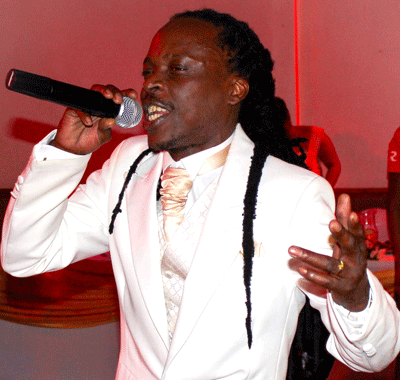
One of the pioneers of Zimdancehall, Major E (real name Ephraim Mushore), who has been living in the UK for a decade, early this month released a single titled We Nuh Regular after a long hiatus. Major E, famed for the song In My Dreams, which he did alongside Innocent Utsiwegota and Booker T in 2001 has been in the UK since 2006 where he has been studying journalism. The Standard Style’s Moses Mugugunyeki (MM) caught up with the lyrical editor (ME). Below are excerpts of the interview.
The Interview with Moses Mugugunyeki

MM: Rasta, you have been quiet over the years, where have you been?
ME: I am here in the UK. I have been studying for the past few years and attained a diploma in Media and a degree in Journalism and Communications from Essex University and Middlesex University respectively. I work for a utility company, which is part of the big six energy providers in the world.
MM: Where are you based in the UK?
ME: I live in the county of Essex to the South east of England. It is a seaside town called Southend, 58km east of London. MM: Tell us more about your projects in Zimbabwe before you left for the UK?
ME: I have enjoyed most of the projects to be honest and they have all been different. From my first collaboration with Booker T on Sound Of the 90’s, Moyo Muti to Countryboy, Amai and In My Dreams, which I did with Innocent Utsiwegota. I have also worked with Fidelity, Decibel and Mathius Julius in various projects as well.
MM: Which was your best project?
- Chamisa under fire over US$120K donation
- Mavhunga puts DeMbare into Chibuku quarterfinals
- Pension funds bet on Cabora Bassa oilfields
- Councils defy govt fire tender directive
Keep Reading
ME: Every artist has different energy and vibe that you feel when you work with them, but when you look at the charts and sales, one would easily say In my Dreams was the one that set the tone. From being number one on the daily Hit Pick (then Radio 3 now Power FM top charts show) to being the top hit on the annual Radio 3 Top 100, toppling international artists such as Mariah Carey, Michael Jackson and R Kelly at the time was such a big achievement for the track.
MM: What impact did In My Dreams have on the local dancehall scene?
ME: The song arguably paved way for dancehall into Zimbabwe’s music industry. It also influenced a lot of Zimdancehall artists of today and though not taking away contributions from other chanters like Paridzai, the late Culture T, Dudz, Allan Ranks, Yellow Vibes and Booker T, among others.
MM: Who else do you give credit for the resurgence of Zimdancehall?
ME: Institutions and sound systems like, Star Time, Roughneck, Stereo One, Small Axe Black King, Siverstone, New Generation, African Exodus and Red Scorpion should be credited for giving yesteryear chanters the platform to expose themselves and carve their careers.
MM: Do you see yourself retracing your roots to do a collaboration with either Booker T or Utsiwegota?
ME: I am glad to say that I have been in touch with Innocent lately and a new project is on the cards, but it’s still early days.
MM: Tell us about your latest project.
ME: I had taken time away from music but now I am back, so expect to hear more tunes in the near future. The industry here [UK] is big, so there are no limits. I have engaged Shogun Beats, a UK producer who endorsed my new single We Nuh Regular and negotiations are underway to release the track on Dubstep Riddim, a very popular genre with ravers over here. I feel this is a positive step in penetrating the UK market. I am also working as a DJ for a UK-based sound system called Lion Heart and though it is a different audience from my days with Stereo One in Harare, it is still the same vibe and just transferring my skills.
MM: What message is contained in We Nuh Regular?
ME: We Nuh Regular means we don’t blend in. It’s like I am relaying this message to artists, DJs, producers and managers to have respect for one another. I also talk about my journey in music and how we have lost respect for our values as Zimbabweans living in the Diaspora. I must pay tribute to my producer DJ Fydale, a humble but talented young man. I thoroughly enjoyed working with him on this project and there is plenty where this came from. MM: Where can we get the single here in Zimbabwe?
ME: The single is out playing on radio stations in the UK, Zimbabwe and South Africa. It’s available on iTunes, Spotify, Amazon and various digital download platforms.
MM: How is it like exhibiting your skills on foreign soil?
ME: It makes me proud to be a Zimbabwean when they hear me on the microphone and they sometimes think I am from the Caribbean. I strongly believe in the talent of Zimbabwean artists and it is a matter of channelling it in the right direction and working hard to perfect our works.
MM: Do you listen to Zimdancehall and what’s your take?
ME: I listen to Zimdancehall from time to time and enjoy it much. Everyone is trying to sing it and that’s good for competition because it brings the best out of the artists. I would encourage artists not to rush their projects, but instead fine-tune their craft for as long as it takes before releasing. Producers should also play a pivotal role in tailor-making riddims than the other way round.











